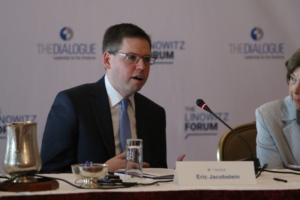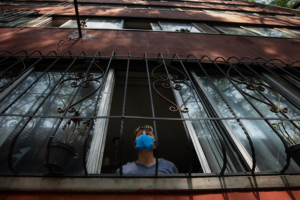The Dialogue’s Alumni Network
The Inter-American Dialogue has had the privilege of hosting some of the best and brightest leaders from across the Americas as staff members and interns. Dialogue alumni have continued their work within the Latin American and Caribbean region in a variety of sectors including international organizations, government bodies, think tanks, consulting firms, and private corporations. Alumni regularly attend our meetings, participate in our events as panelists, and comment in our publications. We thank our strong network of former Dialogue staff and interns for their expertise, time, and support.
To learn more about our current staff and interns, visit our staff page. If you are interested in applying to our internship program or would like to learn about employment opportunities, visit our careers page.
Are you a Dialogue alumni interested in reconnecting with our network? Reach out to president@thedialogue.org for information on our upcoming alumni events, LinkedIn group, and more.
LATEST ALUMNI IN THE NEWS
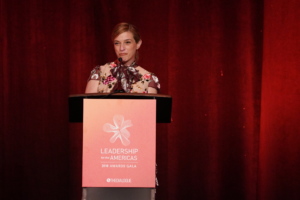 |
Working with the non-profit Stand Together, Pati Jinich, a renown Mexican chef and Dialogue alumna, has published a new e-book called The Stories of Our Table. The book is a compilation of recipes that “span continents, centuries, and are a delightful reminder that unique recipes can be tasty to everyone and anyone who ventures to try them at home.”
|
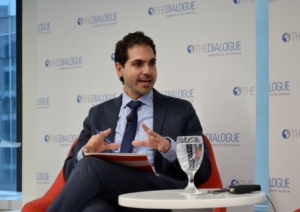 |
Dialogue alumnus Michael Camilleri joined the Biden-Harris Administration as a senior advisor to Administrator-designate Samantha Power at the United States Agency for International Development (USAID). He will lead a new USAID task force on the Northern Triangle of Central America. |
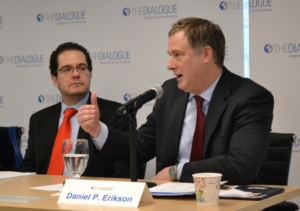 |
Daniel P. Erikson, previously Managing Director at Blue Star Strategies, LLC was sworn in as Deputy Assistant Secretary of Defense (DASD) for Western Hemisphere Affairs. In addition to his US government experience, Erikson previously served as Director of Caribbean Programs and Senior Associate for US Policy at the Inter-American Dialogue.
|
|
Dialogue alumnus Eric Jacobstein joined the Biden-Harris Administration as a senior advisor to the Latin America and Caribbean Bureau in the United States Agency for International Development (USAID). In his time at the Dialogue, he held the position of manager of legislative affairs. |
ALUMNI IN THE LATIN AMERICA ADVISOR
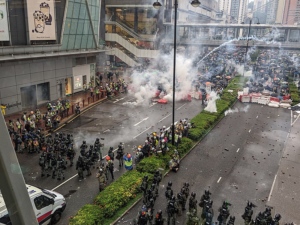 |
Will Latin America Turn Against China Over Human Rights? The United States on July 15, 2020 announced it had sanctioned Chinese technology firm Huawei for alleged complicity in human rights abuses. To what extent have such developments altered Latin American and Caribbean countries’ attitudes toward China, a country that over the past decade has provided billions of dollars in lending and other support for the region? Ricardo Barrios gave his commentary on the situation.
|
|
Is Online Banking Reducing Poverty in Latin America? At least 1.6 million Colombians who had never before had a bank account have joined the formal financial system just since April 2020, and officials say nearly 86 percent of Colombians now have some type of financial account, a level the government had not expected to reach until 2022. To what extent has the Covid-19 pandemic accelerated entry into the formal financial system in Latin America, and why? Julia Yansura commented in this edition of the Latin America Advisor. |
BLOGS
|
Few Changes After Argentina’s Legislative Elections On the night of November 14, Argentine President Alberto Fernández euphorically celebrated an electoral defeat. Earlier that day, in the legislative elections, the ruling Peronist coalition –Frente de Todos– obtained only 33.5 percent of the national vote against 42 percent of the opposition coalition Juntos por el Cambio. Why was the president celebrating, then, apart from lifting the spirits of Peronist supporters?
|
|
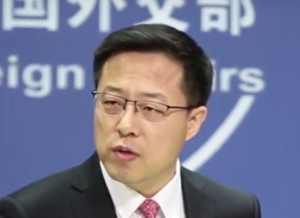 |
China’s “Wolf Warrior” Diplomacy in LAC: Pandemic-Era Trends Sharp-edged messaging from Chinese diplomats featured prominently in China’s global communications in the early months of the Covid-19 pandemic.
|
 |
Argentina: Defeat, Truce and Weakness Argentina’s ruling Peronist coalition -Frente de Todos- came close to collapsing after suffering a humiliating defeat in the September 12 primary elections, when it obtained only 32 percent of the vote nationally, against 42 percent for the opposition coalition, Juntos por el Cambio.
|
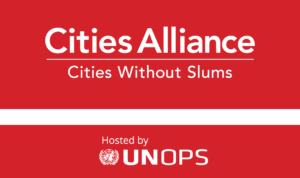 |
In a series of blog posts, Emma Leonardo Solorzano details the “Thriving in San Marcos” initiative carried out in partnership with Cities Alliance. and the Swiss Agency for Development and Cooperation. Leonardo Solorzano writes on financial education, business coaching for entrepreneurs, and how youth can benefit from extracurricular education.
|
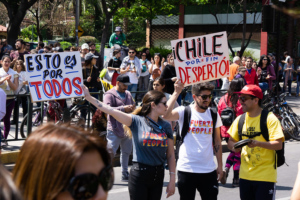 |
The failure of the right to obtain sufficient seats for a veto, the near total rejection of the moderate parties that historically have governed Chile, and the stunning power of anti-establishment, independent leftists all point towards a Convention that will draft a thoroughly leftist new constitution.
|
|
Intertwining Afflictions: Corruption and Covid-19 in Latin America As governments and regional organizations muster a plan for post-pandemic economic recovery, addressing corruption must be at the forefront of any response — now more than ever. Casey Wetherbee wrote how necessary government responses to the pandemic have increased the space for opportunism and malpractice from public officials.
|
|
|
The Nexus of Digital Platforms and Cryptocurrency: Remittances to Cuba During the Covid-19 Pandemic The context surrounding the Covid-19 crisis has aggravated circumstances that limit remittance flows to Cuba. Denisse Delgado-Vázquez explores the emergence of digital technologies and cryptocurrencies as new, formal channels for sending remittances and paying for the goods and services used by families on the island.
|
FEATURED ALUMNI PROFILES
TESTIMONIALS
William Perez, Intern, Latin America Program, 2013
“As an intern, it was illuminating to learn the vast level of scholarship in China and Latin America. I am Colombian and I had lived in China. I was knowledgeable of the bilateral relationship between both countries. At the Dialogue, the perspective broadened at a hemispheric and global level. Interning at the Dialogue provided a more holistic perspective in understanding the big picture not only in the Americas but also globally. Equally important was the continuous engagement with Dialogue activities as an alumnus. I found particularly insightful reading the Latin American Advisor and some of the conferences organized by the Dialogue. These helped me greatly in my professional career to understanding the economic and political dynamics in different countries where I was doing business. This information allowed me to recalibrate and refocus different business development activities that I was working on in the region.”
Missy Reif, Program Associate Conferences and Special Projects, 2016-2019
“I would also say that having up-close access to thought leaders from the region, including former and sitting presidents, academics and civil society leaders, was a particularly unique experience as a young professional. I’ll never forget when then-President Luis Guillermo Solis (Costa Rica) came to the office for a meeting with Michael Shifter and stopped to ask every junior staff member what they worked on and thanked us for our work. While I don’t work planning events anymore, I feel that these regular interactions with high-level speakers and USG officials at the Dialogue has impacted my current work. Although I am still considered “junior staff,” I feel empowered to speak up in meetings with government officials from the region, moderate events in English and Spanish, and gained more confidence in my voice as an expert on democracy issues in the region.”
Claire Prestwood, Intern, Central America Program, 2000
“Believe it or not, I’m still having impactful Dialogue experiences! Currently, I’m very grateful for the Dialogue’s support and informational exchanges with its fellows regarding the issues and topics related to Cargill’s operations in the region. I always value the insight and expertise of the Dialogue’s staff, and its generosity of information and thought. I suppose I’ll age myself when I mention that the interns in 2000 had to take turns compiling daily news clips, which in those days were still literally articles clipped from newspapers and magazines and pasted into binders. That, however, was my first experience in intelligence collection and issue monitoring. I also remember working as support staff for a Sol M. Linowitz Forum and being amazed at the number of foreign policy experts, diplomats, and Latin Americanists in the room. I felt the significance and impact that such a group can have on the future of the Western Hemisphere, and the immense value in the free exchange of ideas and policy proposals among people who would have a role in shaping the future of their countries. I was in awe.”




















